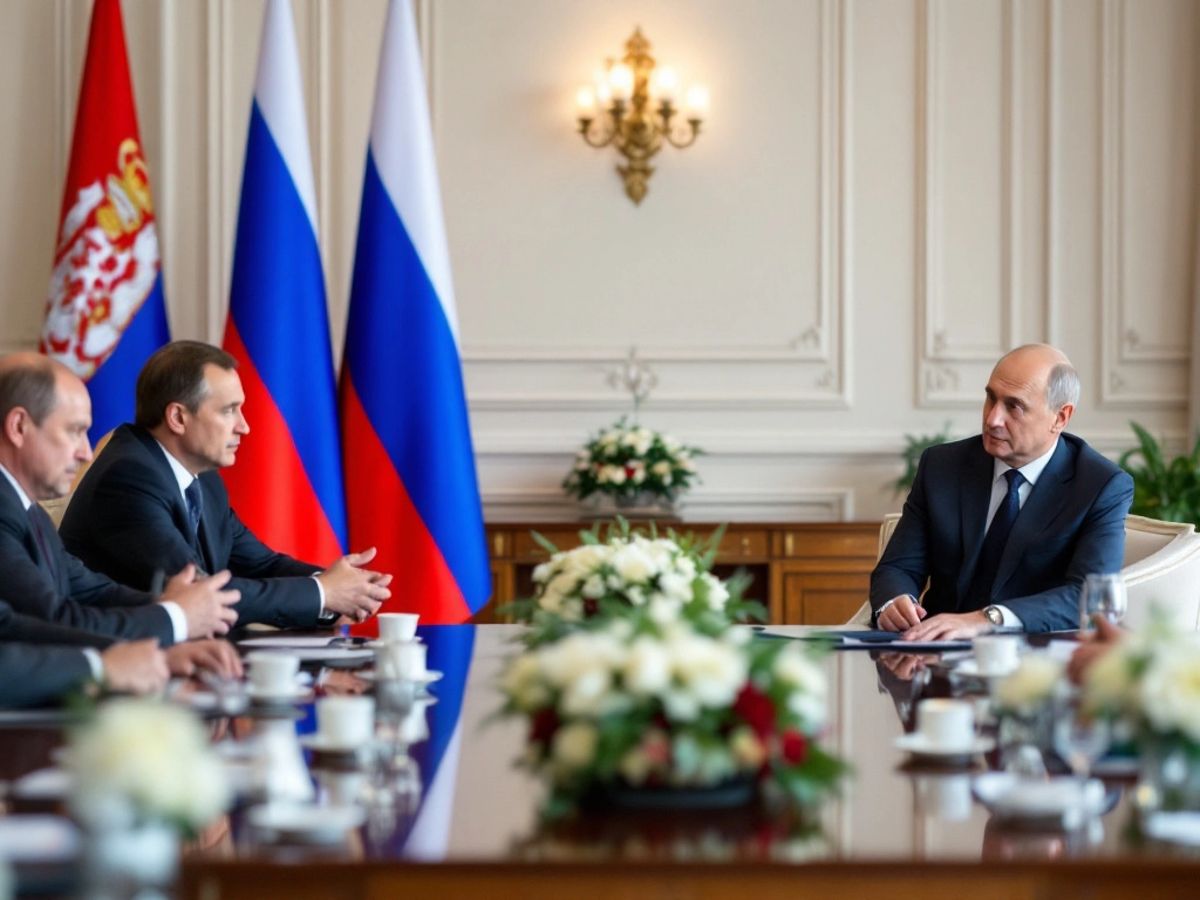Serbia’s President Aleksandar Vucic recently expressed gratitude to Russian President Vladimir Putin for gas supplies and reaffirmed his commitment to never impose sanctions on Russia. This statement comes despite increasing pressure from Western nations following Russia’s invasion of Ukraine. Vucic’s remarks were made during a phone call with Putin, marking their first conversation in over two years.
Key Takeaways
- Vucic thanks Putin for gas supplies, emphasizing Serbia’s reliance on Russian energy.
- Serbia will not impose sanctions against Russia, citing national interests.
- The conversation is seen as a step towards strengthening Serbia-Russia relations.
- Vucic expects criticism from the West but insists on Serbia’s sovereignty.
Background of Serbia-Russia Relations
Serbia has historically maintained close ties with Russia, viewing it as a traditional ally. Despite its aspirations for European Union membership, Serbia has resisted joining Western sanctions against Russia. Vucic has stated that imposing sanctions would not align with Serbia’s national interests, a sentiment echoed by many in the Serbian government.
The Recent Conversation
During the ten-minute phone call, Vucic described the interaction as friendly and personal. He noted that both leaders discussed the importance of their countries’ relationship, with Putin reportedly stating, "What is good for Serbia is also good for Russia."
Vucic did not confirm whether he would attend an upcoming BRICS summit in Kazan, Russia, where he had previously received an invitation from Putin. This summit is significant as it includes emerging economies led by Russia and China, further highlighting Serbia’s geopolitical positioning.
Serbia’s Energy Dependency
Serbia’s energy landscape has been heavily influenced by its reliance on Russian gas. Vucic thanked Putin for ensuring sufficient gas supplies for the upcoming winter, a critical concern for the Serbian economy. While Serbia has begun exploring alternative energy sources, it remains partially dependent on Russian gas, complicating its energy strategy.
National Sentiment and Historical Context
The conversation with Putin coincided with the 80th anniversary of the liberation of Belgrade from Nazi occupation during World War II. This historical event was marked by pro-Russian sentiment, with thousands of citizens participating in celebrations, waving Russian flags and chanting slogans in support of Russia. Vucic delivered a speech in Russian, emphasizing respect for the Red Army’s role in the liberation of Belgrade.
Conclusion
As Serbia navigates its path between Western aspirations and traditional alliances, Vucic’s recent statements underscore the complexities of its foreign policy. The refusal to impose sanctions on Russia, coupled with a commitment to strengthen bilateral relations, reflects Serbia’s unique position in the geopolitical landscape of Europe. Vucic’s leadership will continue to be scrutinized as Serbia balances its national interests against external pressures from the West.
Sources
- Serbia’s president thanks Putin for gas supplies and vows he’ll never impose sanctions on Russia, Yahoo.
- Serbia’s president thanks Putin for gas supplies and vows he’ll never impose sanctions on Russia | AP News, AP News.
- Serbian president speaks to Putin for first time in 2.5 years, The Express Tribune.
- Serbia’s president talks with Putin and vows he’ll never impose sanctions on Russia | International | bgdailynews.com, Bowling Green Daily News.
- Serbia’s president thanks Putin for gas supplies and vows he’ll never impose sanctions on Russia – KVIA, KVIA.
